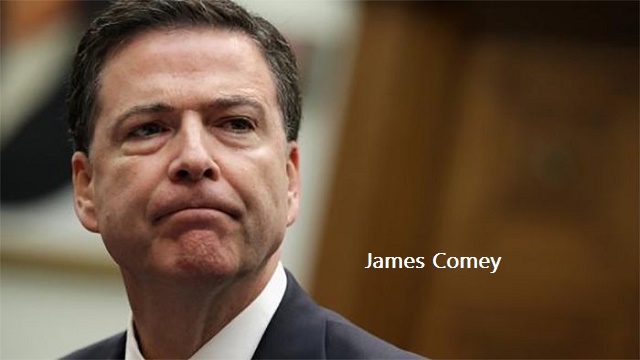Clinton Emails Reveal Additional Mishandling of Classified Information, the IRS Scandal is Still a Scandal
Clinton Emails Reveal Additional Mishandling of Classified Information
We continue to accumulate details of the communications abuses in the Hillary Clinton State Department, but after you read the following report pause and consider the big picture. For four years the inner workings of her department were porous to prying eyes. Is it just a coincidence that Hillary Clinton’s diplomatic efforts so often failed?
This week we released 1,617 new pages of documents revealing numerous additional examples of classified information being transmitted through the unsecure, non-state.gov
The documents included 97 email exchanges with Clinton not previously turned over to the State Department, bringing the known total to date to at least 627emails that were not part of the 55,000 pages of emails that Clinton turned over, and further contradicting a statement by Clinton that, “as far as she knew,” all of her government emails had been turned over to department.
The emails are the 20th production of documents obtained in response to a court order in a May 5, 2015, lawsuit we filed against the State Department (Judicial Watch, Inc. v. U.S. Department of State (No. 1:15-cv-00684)). We sued after State failed to respond to a March 18, 2015, Freedom of Information Act (FOIA) request seeking: “All emails of official State Department business received or sent by former Deputy Chief of Staff Huma Abedin from January 1, 2009 through February 1, 2013 using a non-‘state.gov‘ email address.”
On September 11, 2009, the highly sensitive name and email address of the person giving the classified Presidential Daily Brief was included in an email forwarded to Abedin’s unsecure email account by State Department official Dan Fogerty. The State Department produced many more Clinton and Abedin unsecured emails that were classified:
- On March 8, 2009, Clinton sent classified information using her unsecure hdr22@clintonmail.com
account. She forwarded to former Senator George Mitchell an email from Tony Blair relating to Palestine. The email had been sent to her at hr15@att.blackberry.net. Clinton responded to Blair, saying she had forwarded the email to Mitchell. A former Senate majority leader, Mitchell was serving as Special Envoy for Middle East Peace.
- On April 16, 2009, Deputy Assistant Secretary Jeffrey Feltman sent to Abedin’s unsecure email account classified information about an unknown subject.
- On June 18, 2009, Abedin sent classified information summarizing a June 18, 2009, “Middle East Breakfast” meeting between various senators, representatives and State Department officials, at which Deputy Secretary Jack Lew and George Mitchell briefed the congressmen with “an update on our discussions with the [Middle East] parties.”
- On June 23, 2009, U.S. diplomat Martin Indyk, who had his security clearance suspended in 2000 for “possible sloppiness” in the handling of classified information, sent a memo containing classified information to Abedin’s unsecure email account. The memo, written for Clinton, pertained to Indyk’s discussions with top Israeli officials:
- On August 1, 2009, Abedin forwarded classified information from State Department official Richard Verma to her unsecure email account. The email from Senator Russ Feingold was sent to Hillary Clinton regarding her upcoming Africa trip.
- On August 4, 2009, Assistant Secretary Jeffrey Feltman sent classified information about discussions with Kuwaiti officials to Abedin’s unsecure email account. Feltman noted that the Kuwaitis felt a lunch they had with Obama was “chilly.” The discussions concerned Guantanamo as well as Kuwait’s treatment of detainees.
- On Sept 20, 2009, Abedin forwarded classified information to her unsecure email account. The email was from State Department official Esther Brimmer and concerned foreign leaders’ discussions regarding a UNESCO leadership appointment.
- On November 1, 2009, U.S. Ambassador to the UAE Rick Olson sent classified information to Abedin’s unsecure email account. The email shows that Olsen was traveling with Hillary in the Middle East, and Abedin asked him to “work on a list of everything covered in the mbz [presumably Mohammed bin Zayed bin Sultan Al-Nahyan, the Crown Prince of Abu Dhabi] meeting for Hillary.” Olson asks: “do you want it on this system (I can sanitize), or on the other system.” She replies: “This system easier. We are staying without class[ified] computers. Thx.”
- On December 1, 2009, Abedin sent classified information about foreign military contributions to the Afghanistan war effort to her unsecure email account. The email originated with State official Sean Misko who wrote to Deputy Chief of Staff Jake Sullivan that he first “accidentally” sent it on the “high side” (secure) but was resending.
- On December 25, 2009, Abedin sent to her unsecure email account classified information prepared by Deputy U.S. Ambassador to Afghanistan Francis Ricciardone concerning the Afghan elections.
- On December 26, 2009, U.S. Ambassador to Mexico Carlos Pascual sent a memo to Clinton, which was found on Abedin’s unsecure email account. It contained extensive classified information involving U.S. and Mexican counter-drug operations in Mexico.
- On March 22, 2010, Abedin forwarded to her unsecure email account classified information about a telephone conversation between President Obama and Mexican President Felipe Calderon.
- On April 13, 2010, Abedin forwarded to her unsecure email account classified information from Ambassador Jeffrey Feltman regarding diplomatic discussions with the foreign ministers of Algeria and Morocco.
- On May 24, 2010, Abedin forwarded to her unsecure email accountclassified information about the minutes of a State Department senior staff meeting regarding State Department officials’ meetings in Uganda.
- Among Abedin’s unsecure email records is a document that is simply titled “NOTE” with the date September 12, 2010. The contents are entirely redacted as classified.
- On January 28, 2011, Abedin sent Clinton an unsecure email containing classified information relating to a briefing White House Press Secretary Robert Gibbs gave.
- On March 21, 2012, Clinton received a memo from State Department officials Joseph Yun and Derek Mitchell marked “Sensitive But Unclassified” and sent to Abedin’s unsecure email account. It contained classified information about elections in Burma.
- Jake Sullivan emailed to Hillary’s unsecure email account classified information in which Sullivan discussed the content of conversations with UK Prime Minister Gordon regarding “the situation” in Northern Ireland. The date of this email is not included on the document.
- On April 8, 2012, Abedin sent classified information to her unsecure email regarding a call sheet and an “Action Memo” for Clinton relating to a call with Malawi President Joyce Banda. On April 9, 2012, confidential assistant Monica Hanley again forwarded the classified information to Clinton’s unsecure email account.
Other emails contain sensitive information that was sent via Hillary Clinton’s unsecure email servers.
- On August 18, 2009, Hanley provided Abedin with laptop and fob (a physical device that provides a login code) logins and passwords to log onto a laptop, as well as a secure State Department website at https://one.state.gov. Included were a PIN number and instructions on how to access her email from the secure State Department website. Abedin forwarded this information to her unsecure account.
- On August 19, 2009, Hanley asked Abedin to call her and provide Abedin’s computer password so that she could download a UN document for Cheryl Mills from Abedin’s computer. Instead of calling Hanley, Abedin apparently provided the computer password in her unsecure reply email, saying, “Its [redacted].”
- On April 17, 2009, Clinton aide Lona Valmoro emailed Clinton’s sensitive daily schedule for April 18 to various Clinton Foundation officials, including Doug Band, Terry Krinvic and Justin Cooper. She also forwarded Clinton’s daily schedule for July 16 to numerous Clinton Foundation officials. She did the same thing on September 8, 2009. She did so again on January 10, January 14 and April 11, 2010.
- The details of Hillary’s arrival on November 18, 2009, in war-torn Kabul, Afghanistan, for the inauguration of President Karzai, were found on Abedin’s unsecure email account. Included were precise times of landing at Kabul Airport, the occupants of her vehicle, arrival and departure times at the U.S. Embassy in Kabul, and meeting times with U.S. forces in Afghanistan.
The new documents show that Clinton donors frequently requested and received special favors from the State Department that were connected to the Clinton Foundation.
- On July 14, 2009, Gordon Griffin, a XL Keystone lobbyist, sent an email to Clinton Foundation executive Doug Band, asking if Band could get him into a Council on Foreign Relations dinner at which Clinton was speaking. Band forwarded the email to Abedin, saying, “Can u get him in?” Abedin replied: “Yes will get him in.” Band was a top aide to President Bill Clinton and co-founder of Teneo. Griffin was a major donor to Hillary Clinton’s Senate and presidential campaigns.
- On July 16, 2009, Zachary Schwartz asked Band for help getting visas to travel to Cuba for a film production crew from Shangri La Entertainment. Band forwarded the request to Abedin, telling her, “Please call zach asap on this. [Redacted.] Important.” Abedin responded, “I’ll call zach when we land in India.” Abedin concludes with “Enjoy. Cuba is complicated. Am sure you aren’t surprised to hear that.” Schwartz worked for Steve Bing, a mega-donor to the Clintons and owner of Shangri La Entertainment. Bing has reportedly donated $10-25 million to the Clinton Foundation and paid Bill Clinton personally $2.5 million a year to be an adviser to a green construction company Bing owned.
- On September 11, 2009, Terrence Duffy, chairman of futures brokerage firm CME Group, a donor to the Clinton Foundation, asked Clinton to arrange “government appointments” for him in Singapore and Hong Kong. Clinton, using her HDR22@clintonmail.com
address, forwarded the request to Abedin, “fyi.” Abedin responded to Duffy’s email, saying she would “follow up” with Duffy’s secretary, Joyce. Duffy gave $4,600 to Hillary’s 2008 presidential campaign; CME Group paid Hillary $225,000 for a speaking fee and has donated between $5,001 and 10,000 to the Clinton Foundation.Abedin, using her huma@clintonmail.com address, later told Joyce, “Would like to get some more information and details so we can try to help.” Further along in the exchange, Joyce responds “We would also like some help in arranging meetings with some key govt officials in both locations, such as the Prime Minister of Singapore, and would appreciate any help you may be able to provide.”
On September 29, 2009, Abedin followed up with Duffy, telling him that “we are happy to assist with any and all meetings” and that she had “discussed you and your trip with our assistant secretary of state for east asia and pacific affairs,” suggesting that Duffy write the assistant secretary, Kurt Campbell. Duffy replied, “Thank you very much. I did connect with Kurt Campbell today.”
- On May 5, 2010, major Clinton Global Initiative member, Clinton Foundation donor and real estate developer Eddie Trump forwarded to “Dougie” Band a request for assistance from Russian American Foundation Vice President Rina Kirshner to get the Russian American Foundation involved in a State Department program. Band forwarded the request to Abedin, saying, “Can we get this done/mtg set.” As Judicial Watch previously reported, the State Department doled out more than $260,000 to the Russian American Foundation for “public diplomacy.”
- Major Clinton donor Bal Das, a New York financier who reportedly raised $300,000 for Hillary’s 2008 presidential campaign, asked Abedin on November 11, 2009 if Hillary Clinton could address the Japan Society at its annual conference in 2010. Clinton did speak to the Japan Society’s annual conference in 2011.
The emails also provide insight on the inner workings of the Clinton State Department, in particular her engagement with her staff.
- In a May 19, 2009, “Global Press Conference” memo, Clinton was given in advance the “proposed questions” of four of the seven foreign reporters. Examples include: “What is the Obama administration’s view of Australian PM Rudd’s proposal to form an Asia-Pacific Community” and “Why can’t American drones not find, detect and destroy the insurgency supply line?”
- In a document entitled “HRC Pakistan Notes” prepared for Clinton by her staff, Clinton apparently had to be reminded about all her trips to Pakistan and of “stories that you have told/remember.” Her reminder instructions include: “You loved Faisal mosque, and it was especially meaningful to have CVC [Chelsea] with you.” And: “Your first Pakistani friend was in College. She introduced you to Pakistani food and clothes.” And: “You have had lots of Pakistani and Pakistani American friends over the years. From Chicago to California to Washington, DC, you have friends all over the country. They know how much you love Pakistani food …”
- On February 12, 2010, Case Button, a Clinton speechwriter, asked Abedin if her mother, a professor at Dar Al Hekma, a women’s university in Saudi Arabia where Clinton held a town hall meeting, would be willing to give him advice on talking points he was preparing for Clinton. Abedin responded, “Talk to my mom for sure. She will have good points for you.” After reviewing Hillary’s draft remarks, Huma’s mother, Saleha Abedin, (a controversial Islamist acti
vist), offered some advice: “Do not use the political terms such as ‘democracy/elections/freedom.’ Do not use the term ’empowerment of women’ instead say ‘enabling women’ Do not even mention driving for women! Don’t sound sympathetic to ‘women’s plight’ or be ‘patronizing’ as other visitors have done and made the students extremely annoyed. They rightly consider these as in-house issues …” No references to these issues appear in Clinton’s speech.
Abedin’s involvement in a major appointment at the State Department is controversial given that Abedin’s mother was an Islamist activist.
- On July 24, 2009, Cheryl Mills forwarded to Abedin a CV for someone being considered for the position of Special Envoy to the Organization of Islamic Cooperation. It had been sent to Mills from State Department recruiter Margaret Carpenter. Rather than forwarding the resume on to Clinton for her approval, Abedin simply responds to Mills: “I’m a hundred percent fine with him.”
Abedin also offered her opinion to Clinton on administration leaders: On January 21, 2011, while on a trip to Mexico, Abedin emailed Hillary that, “Biden is a disaster here.”
- On February 20, 2012, Clinton expresses outrage over an apparent wardrobe miscommunication for a meeting in Mexico and sent an email to Abedin with the subject line “I’m venting.” Clinton admonished:
So, here I sit in the meeting surrounded by ever other person dressed in a white shirt provided by the Mexicans. Patricia is not wearing the exact style that all others are but her own white shirt. But, since no one ever told me about this, and instead assumed I didn’t need to know, I had no idea about any of this until I just walked into the large meeting in front of the entire press corps and I’m wearing a green top. So, what’s my answer when asked why I think I’m different than all my colleagues and why I’m dissing our hosts? I am sick of people deciding what I should know rather than giving me the info so I can make a decision. This really annoys me and I told Monica [Hanley] I just didn’t understand.
These emails show ‘what happened’ was that Hillary Clinton and Huma Abedin obviously violated laws about the handling of classified information and turned the State Department into a pay for play tool for the corrupt Clinton Foundation. The clear and mounting evidence of pay for play and mishandling of classified information warrant a serious criminal investigation by an independent Trump Justice Department.
To read more about Huma Abedin’s emails, click here.
The IRS Scandal Is Still a Scandal
In a baffling move, President Trump’s Justice Department has decided not to prosecute Lois Lerner, former director of the Exempt Organizations Unit of the IRS, whose own emails place her at the heart of the politicization of the IRS for the targeting of conservative groups:
When we learned of this, I issued this statement:
I have zero confidence that the Justice Department did an adequate review of the IRS scandal. In fact, we’re still fighting the Justice Department and the IRS for records about this very scandal. Today’s decision comes as no surprise considering that the FBI collaborated with the IRS and is unlikely to investigate or prosecute itself. President Trump should order a complete review of the whole issue. Meanwhile, we await accountability for IRS Commissioner Koskinen, who still serves and should be drummed out of office.
Let’s review the history.
Judicial Watch released 294 pages of FBI “302” documents revealing top Washington IRS officials, including Lois Lerner and Holly Paz, knew the agency was specifically targeting “Tea Party” and other conservative organizations two full years before disclosing it to Congress and the public. An FBI 302 document contains detailed narratives of FBI agent investigations. The Obama Justice Department and FBI investigations into the Obama IRS scandal resulted in no criminal charges.
The FBI 302 documents confirm the Treasury Inspector General for Tax Administration (TIGTA) 2013 report, which said, “Senior IRS officials knew that agents were targeting conservative groups for special scrutiny as early as 2011.” Lerner did not reveal the targeting until May 2013, in response to a planted question at an American Bar Association conference. The documents revealed that then-acting IRS Commissioner Steven Miller actually wrote Lerner’s response: “They used names like Tea Party or Patriots and they selected cases simply because the applications had those names in the title. That was wrong, that was absolutely incorrect, insensitive, and inappropriate.”
Our litigation forced the IRS first to say that emails belonging to Lerner were supposedly missing and later declare to the court that the emails were on IRS back-up systems. Lerner was one of the top officials responsible for the IRS’ targeting of President Obama’s political opponents. Judicial Watch exposed various IRS record keeping problems:
- In June 2014, the IRS claimed to have “lost” responsive emails belonging to Lerner and other IRS officials.
- In July 2014 Judge Emmett Sullivan ordered the IRS to submit to the court a written declaration under oath about what happened to Lerner’s “lost” emails. The sworn declarations proved to be less than forthcoming.
- In August 2014, Department of Justice attorneys for the IRS finally admitted Judicial Watch that Lerner’s emails, indeed all government computer records, are backed up by the federal government in case of a government-wide catastrophe. The IRS’ attorneys also disclosed that Treasury Inspector General for Tax Administration (TIGTA) was looking at several of these backup tapes.
- In November 2014, the IRS told the court it had failed to search any of the IRS standard computer systems for the “missing” emails of Lerner and other IRS officials.
- On February 26, 2015, TIGTA officials testifie
d to the House Oversight and Government Reform Committee that it had received 744 backup tapes containing emails sent and received by Lerner. This testimony showed that the IRS had falsely represented to both Congress, Judge Sullivan, and Judicial Watch that Lerner’s emails were irretrievably lost. The testimony also revealed that IRS officials responsible for responding to the document requests never asked for the backup tapes and that 424 backup tapes containing Lerner’s emails had been destroyed during the pendency of Judicial Watch’s lawsuit and Congressional investigations. - In June 2015, Judicial Watch forced the IRS to admit in a court filing that it was in possession of 6,400 “newly discovered” Lerner emails. Judge Emmet Sullivan ordered the IRS to provide answers on the status of the Lerner emails the IRS had previously declared lost. Judicial Watch raised questions about the IRS’ handling of the missing emails issue in a court filing, demanding answers about Lerner’s emails that had been recovered from the backup tapes.
- In July 2015, U.S District Court Judge Emmet Sullivan threatened to hold John Koskinen, the commissioner of the Internal Revenue Service, and Justice Department attorneys in contempt of court after the IRS failed to produce status reports and recovered Lerner emails, as he had ordered on July 1, 2015.
- Obama IRS Commissioner Koskinen was nearly impeached in September 2016 for misleading Congress on Lerner’s emails.
While Washington spins in circles trying to find election rigging on the part of Donald Trump, it closes its eyes to genuine election skullduggery.
















 Kelsey Harkness is a senior news producer at The Daily Signal.
Kelsey Harkness is a senior news producer at The Daily Signal. 

 Elizabeth Slattery writes about the rule of law, the proper role of the courts, civil rights and equal protection, and the scope of constitutional provisions such as the Commerce Clause and the Recess Appointments Clause as a legal fellow in the Heritage Foundation’s Edwin Meese III Center for Legal and Judicial Studies.
Elizabeth Slattery writes about the rule of law, the proper role of the courts, civil rights and equal protection, and the scope of constitutional provisions such as the Commerce Clause and the Recess Appointments Clause as a legal fellow in the Heritage Foundation’s Edwin Meese III Center for Legal and Judicial Studies. 



